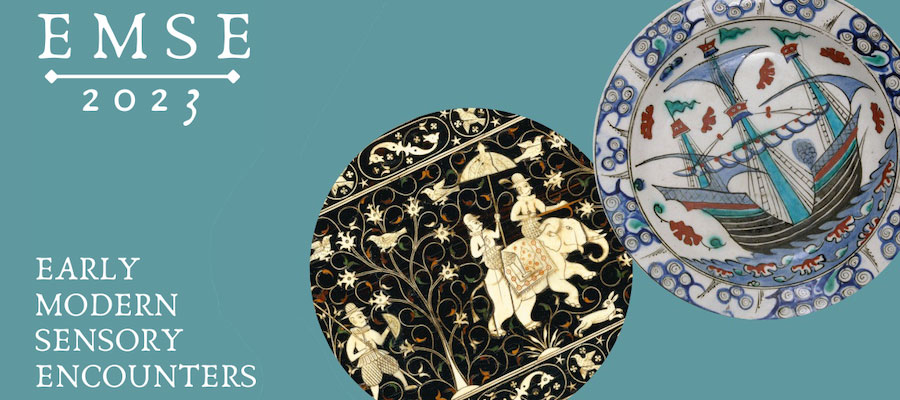Early Modern Sensory Encounters 2023, Kellogg College, University of Oxford, June 8–9, 2023
The University of Oxford and the Open University invite papers for our annual interdisciplinary Early Modern Sensory Experiences (EMSE) conference.
Interest in sensory experiences of the past has grown in recent years, with scholars engaging with both interdisciplinary and anthropological approaches in order to better understand historical lived experiences. This annual conference explores the visual, auditory, tactile, gustatory and/or olfactory elements of particular experiences across the globe between c.1400 and c.1700.
This year’s conference, ‘Sensory Encounters’, welcomes papers that consider sensory experiences as instances or reflections of cultural exchange and which discuss possible methodologies and approaches to this particular subject. Papers may engage with the following themes, amongst others:
- Transcultural Sensory Experiences: how sensory experiences were integral to encounters and entanglements, with both productive and destructive results.
- Senses and the City: how sensory experiences were encountered in the city, and how they may have contributed to cities as sites of cosmopolitanism.
- Mobility and Circulation: How the movement of people, objects, practices and their associated sensorial experiences gave rise to the transfer of similar, or the development of new, sensory experiences.
- Subjectivity: How sensory experiences varied according to gender, social class, race or other perceptions of difference.
Papers are invited from scholars working in any discipline, including musicology, art history, cultural and/or social history, religious studies, and book history, on any geographic region between c.1400 and c.1700.
While we understand that scholars may naturally place emphasis on a particular sense or source as a reflection of their own disciplinary background, we encourage speakers to work across senses, sources and disciplines.
Speakers are encouraged to present work in progress and/or address methodological challenges faced in their research.
